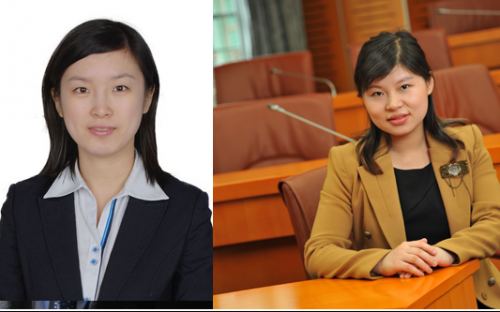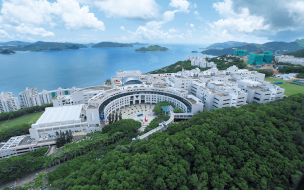It's no secret that Shanghai is one of the most popular Asian cities to launch a career in. Asian economies are some of the most powerful in the world and China and Singapore are key players on the global stage. Shanghai is the second-biggest economy in the world, and China's GDP powerhouse Hong Kong is the number-one ranked economy on the globe.
While China's economy last year expanded at its slowest rate for over a decade, 7.7 per cent growth is a significantly higher than in the West. The U.S economy managed only 2.5 per cent in the second quarter of this fiscal year, while the UK economy's meagure 0.7 per cent growth was hailed as a breakthrough.
China and Singapore boast some of the worlds top business schools and prospective MBAs from the furthest reaches of the world seek to study there. Global MBA Rankings show that five b-schools in China, including CEIBS, are ranked in the top-100 worldwide. Nanyang Business School in Singapore is ranked in the top-50, while SAIF's Finance MBA is considered to be one of the best money can buy.
Shanghai is regarded as the economic hub of China and MBA students from SAIF enjoy the benefits of a plethora of Fortune 500 companies that offer internships to the brightest business school minds. Among the banking giants of Guotai Junan Securities Assets Management and Bosera Funds, some of the highest-ranking businesses in China include tech giants Microsoft and Apple Computer Trading.
With a population of over 23 million, Shanghai is the largest city in China and one that is not lacking in opportunity. A free-trade zone was launched in the city yesterday, as China's economic hotspot prepares to test long-awaited economic reforms. Restrictions on foreign investment will be eased inside the area and interest rates will be set by markets. China's heavily-regulated currency, the yuan, will also be allowed to be swapped freely for other currencies.
Deputy Director of SAIF, Prof. Zhu Ning, praised the reforms as an innovation, and one that will surely benefit MBAs that seek to launch a career in the city after graduation. "This will be one of the most or the most important innovations in Chinese reform," he said. "There will be a relaxation of regulation and also a reduction of the impact of government policies, which will be another big step towards a more oriented reform. I think that is also one way to jump start Shanghai economic growth again."
All of which makes a compelling case for launching a career in Shanghai. But what are the benefits MBAs can expect when working in the city? We spoke to two current MBA students at SAIF who have completed summer internships with two of the largest investment banks in China, to find out why Shanghai is such a good place to launch an MBA career.
Ying Hu is a second-year full-time MBA student. She studied at BA in Human Resource Management at Nankai University in 2009 before working at the Shanghai Pudong Development Bank, Tianjin Branch, as a sales account manager of corporate banking business for three years.
Thanks to the careers team at SAIF, Ying landed an internship with Industrial Bank Co,- a bank with almost CNY60 million operating income. "Shanghai is the financial capital of China," she said. "We have the most advanced financial concepts, and many financial institutions are located in Shanghai, so 'Saifers' have more opportunities than other cities.
"Internships are very important for MBA students and my long-term goal is to become a banker. I am currently in the department of financial market that provides service for other banks. It was easy to get market recognition because of SAIF’s reputation.
"SAIF career development center provide job consulting services throughout all the two years, such as helping us find our own problems and providing suggestions."
Ying thinks that Shanghai's free trade zones will be a big boost to the city. "Free trade zones can promote opening of service trade and is a big boost in foreign investment promotion," she said. "This is a pilot project of Chinese reform. Innovation in financial services and financial opening-up could provide new job opportunities for us."
Yingzhen Hu moved from Hubei province in central China to Shanghai and is studying an MBA at SAIF. Before b-school, Yingzhen studied a Masters in Computer Science and worked in IT program management. She has just completed a summer internship at China Foreign Exchange Trading System and chose to study in Shanghai for the finance-orientated focus MBA program.
Yingzhen thinks Shanghai has a perfect work-life balance. "Shanghai has got lots of fancy companies with professional staff," she said. "This city has a very bright future and the best thing in my viewpoint is I can get balanced career development and lifestyle in Shanghai.
"With the rapid progress in Shanghai, every one of us could find a chance to achieve our goals. With the good living conditions here, we can live a good life by ourselves and try to realize our China Dream: an old saying in China. It becomes more realizable in Shanghai then before."
In the short-term, Yingzhen wants to work as a fixed income trader or an analyst for commercial banks in Shanghai once she graduates. She thinks internships are the key to a successful career in the city. "We cannot emphasize more the internship in our career development of MBAs," she said.
"The majority of our MBAs have few financial experiences, yet we are hunting jobs in financial areas and we still have obstacles. Employers might doubt our competence. Internships are the best practical way to build the bridge of trust between students and employees. As soon as we entered SAIF, they got us lots of interviews to search our career goal and build our career planning."
Thanks to the city's economic reforms, a career in Shanghai is an even more enticing prospect for MBAs. With an abundance of opportunity available in the worlds second-biggest economy, according to MBAs, internships are the key to unlocking the city's potential. If you want a career in finance after b-school, book your flight to Shanghai now.
RECAPTHA :
06
6d
d7
4f








